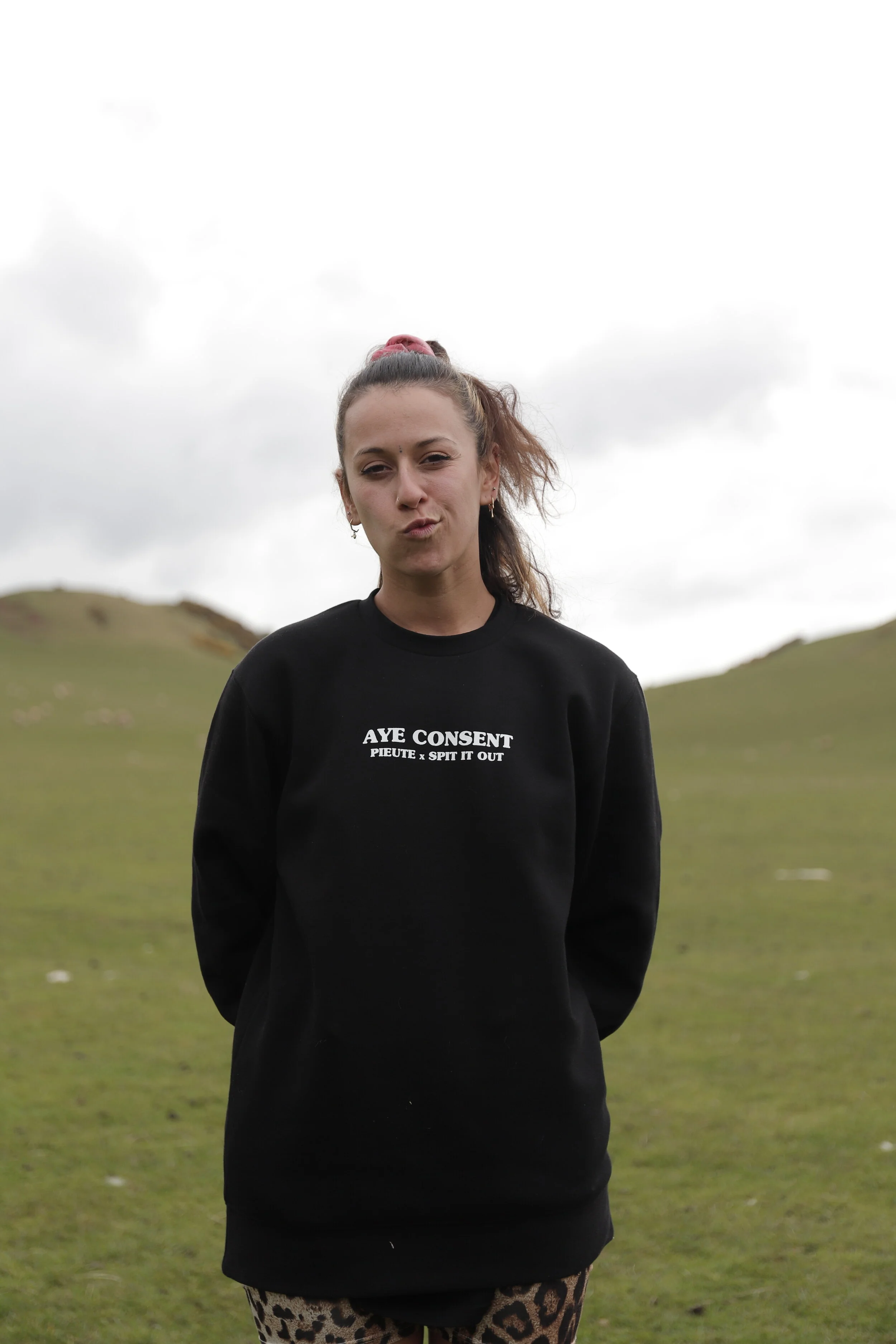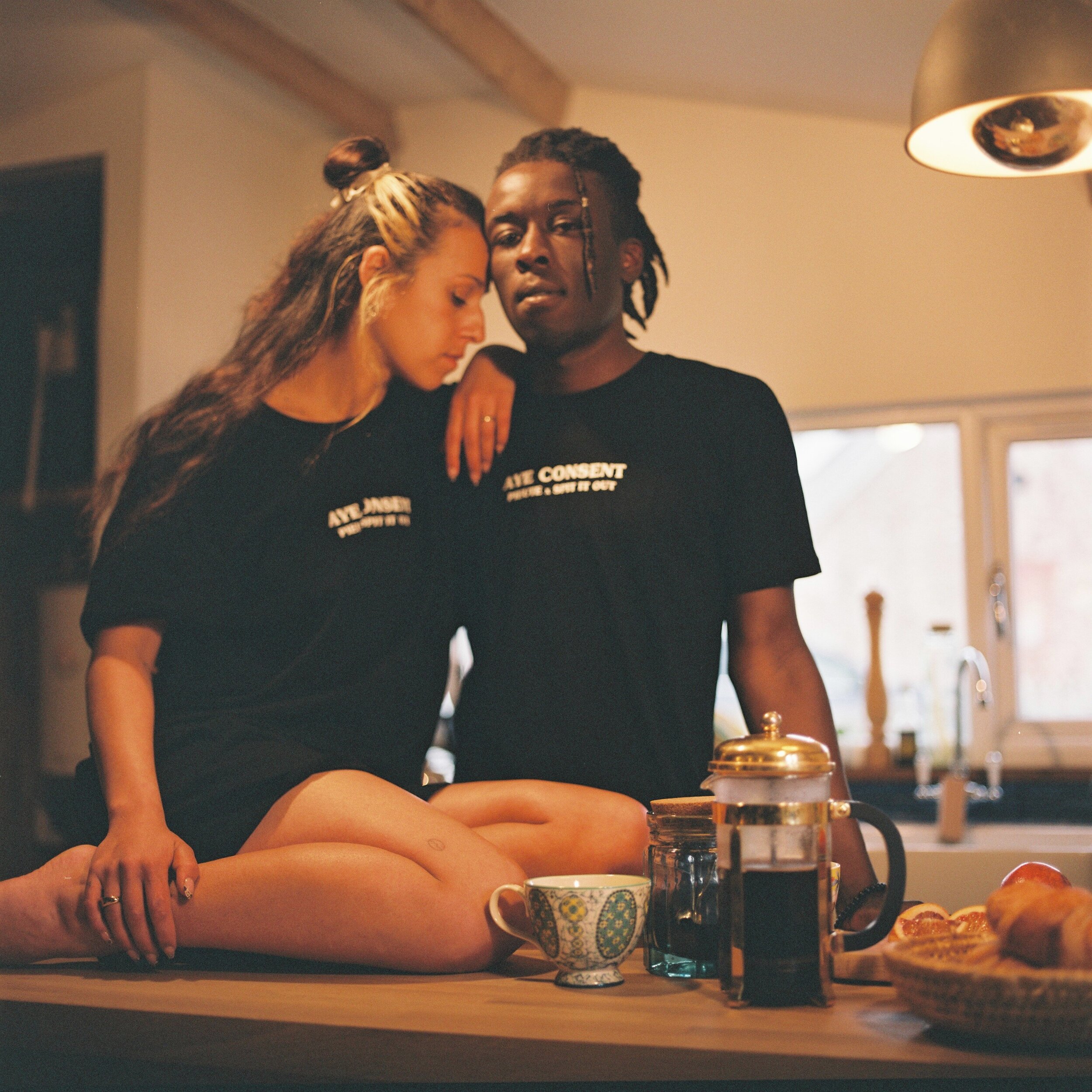
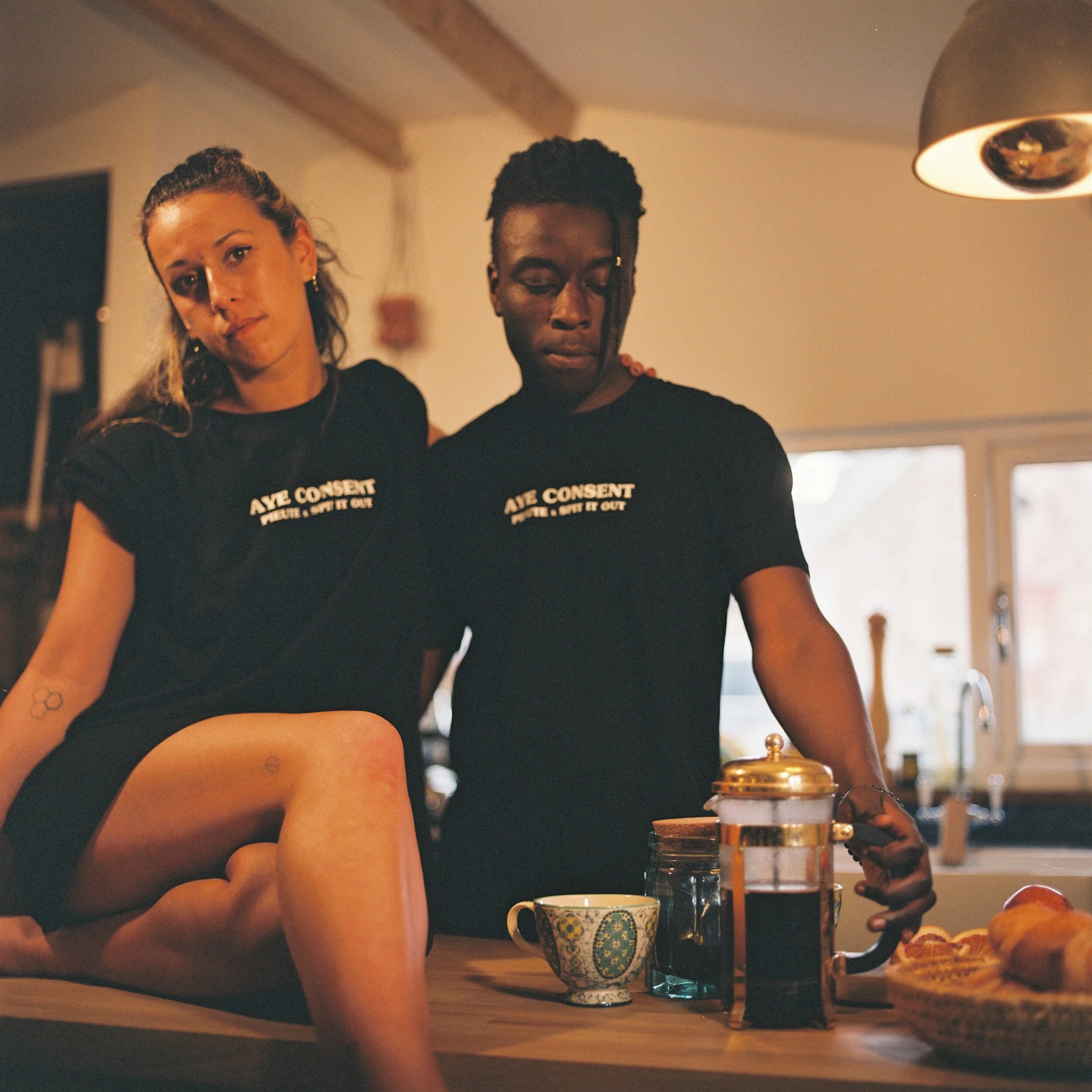
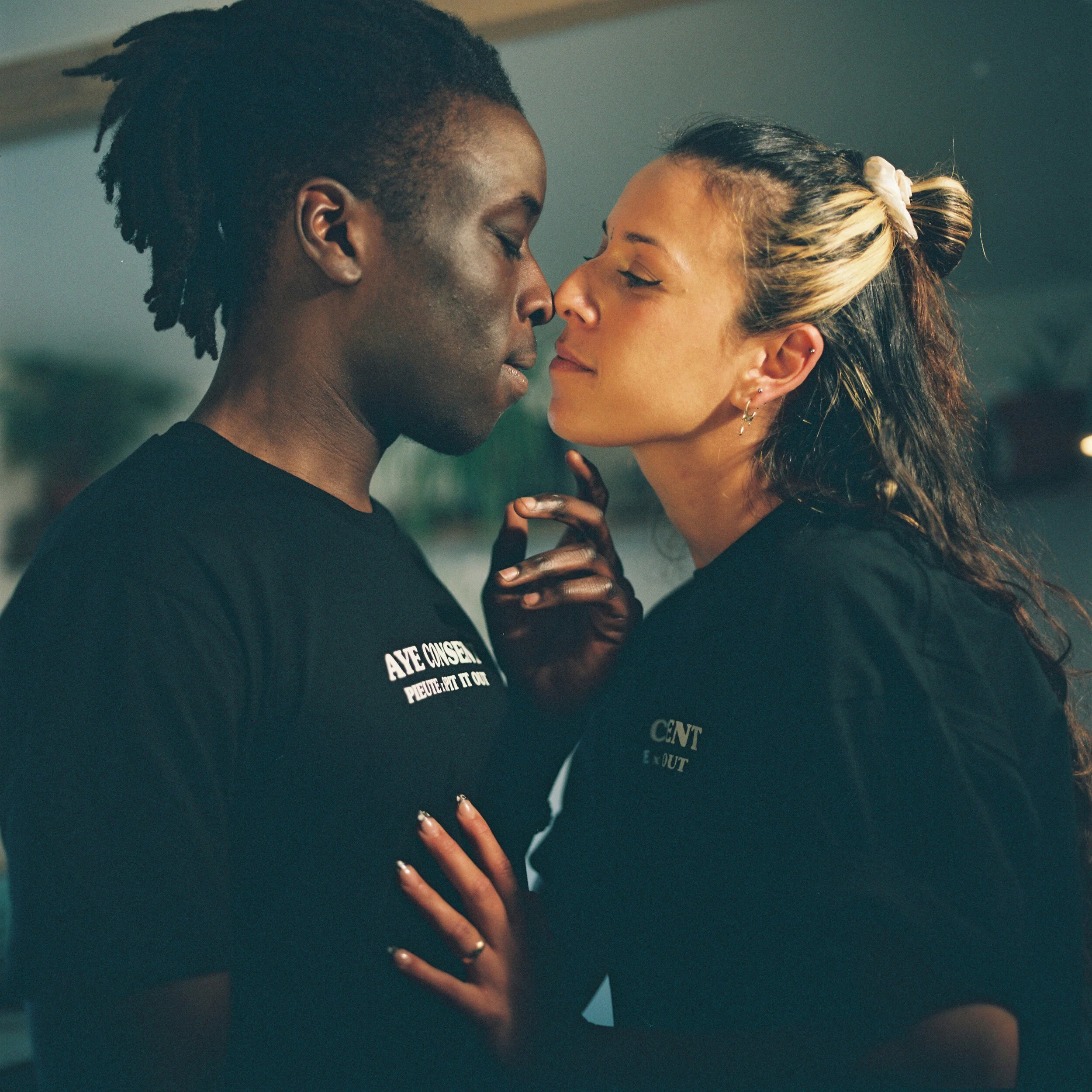
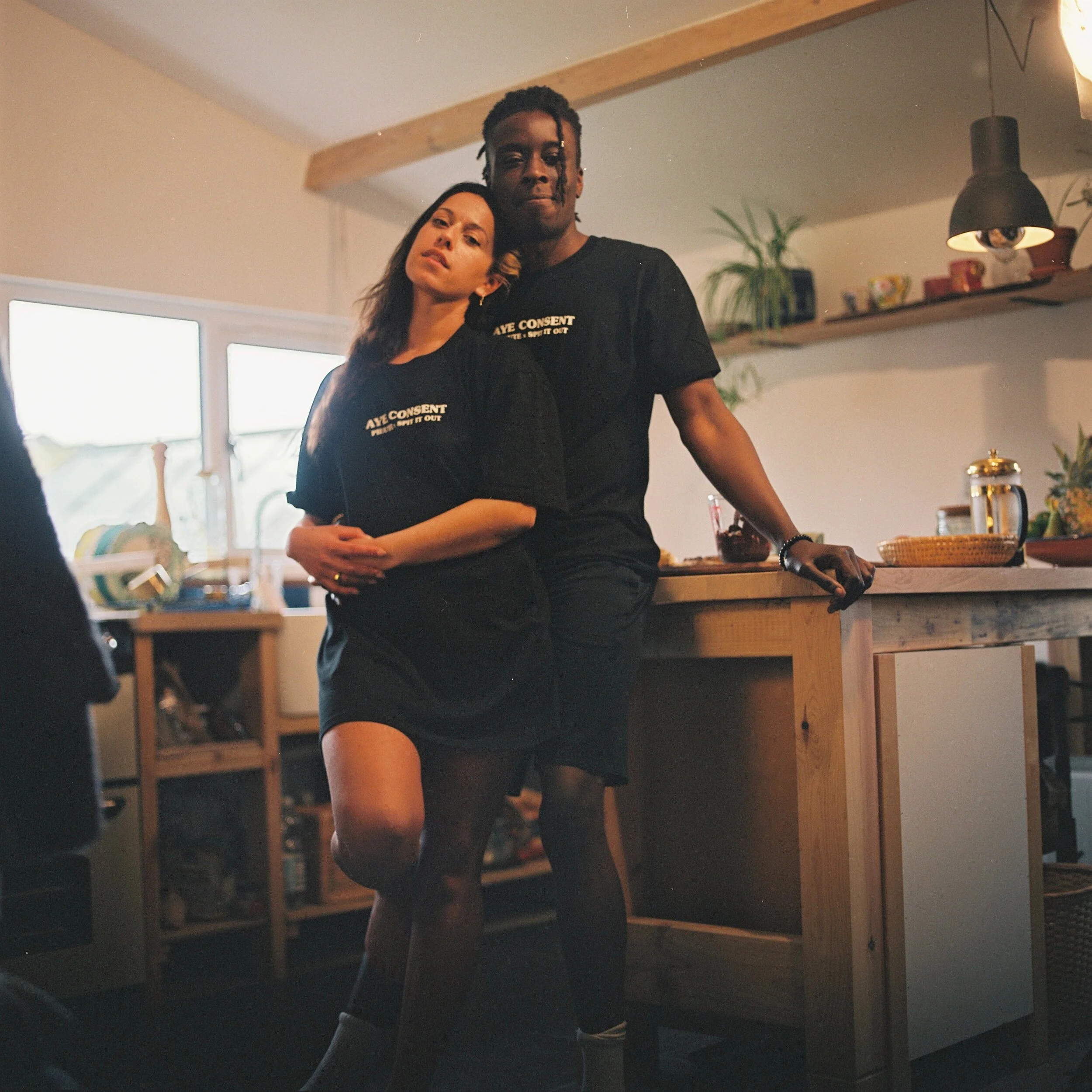
Photography by Seb Singh
Interviews by Erin May Kelly
Set Design by Isabel Forbes
Idea by Lea Luiz de Oliveira and Bee Asha Singh
Bee
Bee is a woman of my talents; spoken word artist, rapper and performer, she began rapping with the Honey Farm years ago. Since then, she’s been writing poetry and music as a solo artist. The one constant throughout is her unfearful approach to taboo subjects; being consistently open and visceral in the face of her work. “I think that it’s really important for me to be completely honest, and try to put stuff out there,” she says, ““My vision of the perfect world is to be able [to] say these types of things without it triggering other people, or if it does, then those emotions which have been triggered are our own to deal with, and I want to provide coping mechanisms to people which also are about being open.”
Spit It Out was conceived between Bee and Lea, when the idea for a documentary grew from their vulnerable conversations between one another; “I talked to her about my rape; at the time, I spoke quite openly about it, I still do”. “That was quite opening to Lea, she wanted to know more about it, and the way I talked about it,” she reveals. “She came to me with the idea of making a documentary, all about using creative outlets to talk about these things, and about the need to talk about them.” From here the documentary began to grow into fruition; “she started filming me, all around Edinburgh and around India.” The Spit It Out documentary went on to be picked up by the BBC.
From there, Spit It Out went on to encompass a diverse cooperative; “we decided to create a collective, and that was just a group of creatives from Edinburgh coming together, to use all of our separate talents to create events around discussions on taboo subjects.” Consent is, in many ways, the thread which ties these discussions together; “I think a lot of people think consent is only consent, sexually,” she says. “Consent means consent across the board; sharing space with someone, touching someone, even someone talking to you requires consent.” This goes beyond words, however; “it’s important that we are observant of other people, and their body language and how they act when you’re around them.”
Speaking on the importance of the SIO x Pieute project, Bee hopes to open up the floor for these discussions universally; “It feels like we’re continually putting these conversations in safe spaces, spaces that are only for minorities, or only for women, or LGBTQ+, and this is about creating a safe space for everyone to be in”.
Segun
South London bred, Edinburgh based rapper Segun started making music at the start of lockdown; “I used to mess around, freestyling with friends, and it was only sort of lockdown when I had nothing to do that, that I thought I’d try and make music,” he says. In spite of this recent transition towards putting out his own tracks, Segun’s upbringing was largely defined by a family which placed music at the forefront; “I’ve been around music for pretty much my whole life, my family were always really into their music, there was constantly sound flying around in the house.” Last month saw the release of his latest single, ‘Over the Net’, and the past few weeks have been punctuated with a constant stream of content in the form of ‘Freestyle Fridays’, a series which has amalgamated into the surprise announcement of an upcoming EP; Chrysalis.
It was two years ago that Segun first became acquainted with Spit It Out; “I met Bee, and she is a huge inspiration to me, in the way that she approaches her writing,” he says. “When she was speaking to me about Spit It Out, that was what initially captivated me, and [consent] is definitely something [people] need to talk about.” On a broader point, he considers our natural reaction towards uncomfortable conversations; to just wish it away. “I think humanity has this [problem], when we don’t know how to deal with stuff, we just kind of ignore it, and that’s not really helpful,” he explains. “Especially in the UK, we love avoiding uncomfortable subjects, and I think SIO is doing a really good job of trying to break that barrier.”
Segun considers this a significant factor to consider in terms of education; “I think that having a dialogue about sex [and consent] is so important, otherwise there’s going to be so many cases of people who lack understanding, who lack the space to talk about it, and who don’t know how to carry themselves in certain situations,” he elaborates. “It’s only through learning that we can improve.”
Reflecting back towards music, we discuss the responsibility of creatives to build space for these conversations; “a lot of artists often avoid topics like that, because they can often be quite polarising issues, they can work negatively for you, and I think a lot of artists are afraid of that,” he tells me; “I definitely feel myself having internal struggles.” He concludes by contextualising this struggle in regard to the responsibility artists must bear in their approach to taboo subjects. “Anybody who is putting things out there, whether you’re a writer, a musician or an artist; when you reach a certain level, people start to look towards you for various different things, and when you reach that level, you sort of gain this responsibility to speak about certain things in a way that is helpful to society.”

